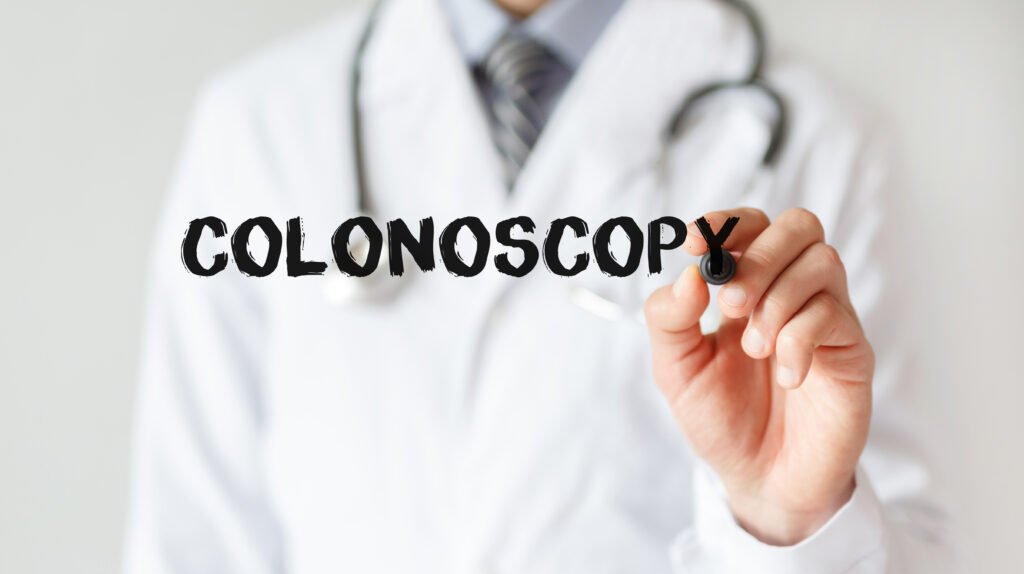COLONOSCOPY

Colonoscopy is the procedure to detect the abnormalities of large intestine. A long flexible tube which is called colonoscope is inserted through your anus. A small camera and a light source at the tip will transmit the images to the video screen.
Your doctor will directly visualise inside your colon on the video screen. Your doctor can take biopsy from the ulcers, cancer or abnormal looking tissue for further evaluation and can offer treatment as well.
WHY WOULD YOU NEED A COLONOSCOPY?
- Your doctor may advice you colonoscopy if you have chronic diarrhoea, chronic constipation, abdominal pain, bleeding from rectum and unexplained weight loss.
- Your doctor may recommend a colonoscopy for you as a part of cancer screening if you are more than 50 years.
- Your doctor can take biopsy, remove polyps, treat bleeding, widen colonic narrowing and can put metallic stents.
PREPARATION: –
- You should not eat or drink anything for 6 hours before the procedure or after midnight if the procedure is planned next morning.
- You need to take a special diet one-day prior the procedure and a preparation to clean your large intestine.
- Poor preparation makes the visualisation of colon difficult so it is important to follow the instructions given by your health care team.
- You will be instructed to take clear liquids a day before the procedure.
- Your doctor will ask you to take laxative preparation a day prior to procedure. You may be instructed to take enema, if a small part of colon and rectum has to be examined.
- You will get liquid stools with the preparation.
- Inform your health care team about the chronic diseases you have like diabetes and high blood pressure or any surgery in the past.
- Inform your doctor about all the medications you are taking specially insulin and blood thinners.
PROCEDURE: –
- Sedation: – You will receive a sedative medication through your vein so that you will be comfortable during the procedure. The sedation will make you drowsy but not unconscious.
WHAT PRECAUTIONS SHOULD YOU TAKE IF YOU RECEIVE SEDATION?
- Please arrange one family member or a friend who can take you home.
- You should not drive, don’t do skilled work or sign a legal document for 24 hours after the procedure.
- It is better if you can take one-day break from your duties.
- Your breathing, blood pressure and heart rate will be monitored with the help of monitors.
- You will be asked to lie down on your back or on one side.
- The long flexible tube will be passed through your anus into the large intestine and air will be inflated for better visualisation. This is the reason you may get cramps in abdomen and urge to defecate.
- A small camera at the tip transmits the image to video screen. Your doctor can directly visualize inside your entire colon on the screen.
POST PROCEDURE MANAGEMENT: –
- You will be kept in the recovery area and monitored.
- You may have abdominal bloating which will improve with time and passage of gas for few hours.
- If your doctor remove polyp from your large intestine, he will ask you to observe the stools for 1-2 weeks for any signs of bleeding and can put you on a special diet.
- Your health care team will guide you regarding post-procedure care and precautions to be taken.
- Your doctor will discuss the colonoscopy findings with you after the procedure.
